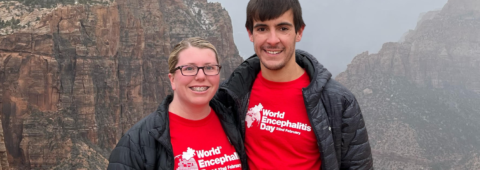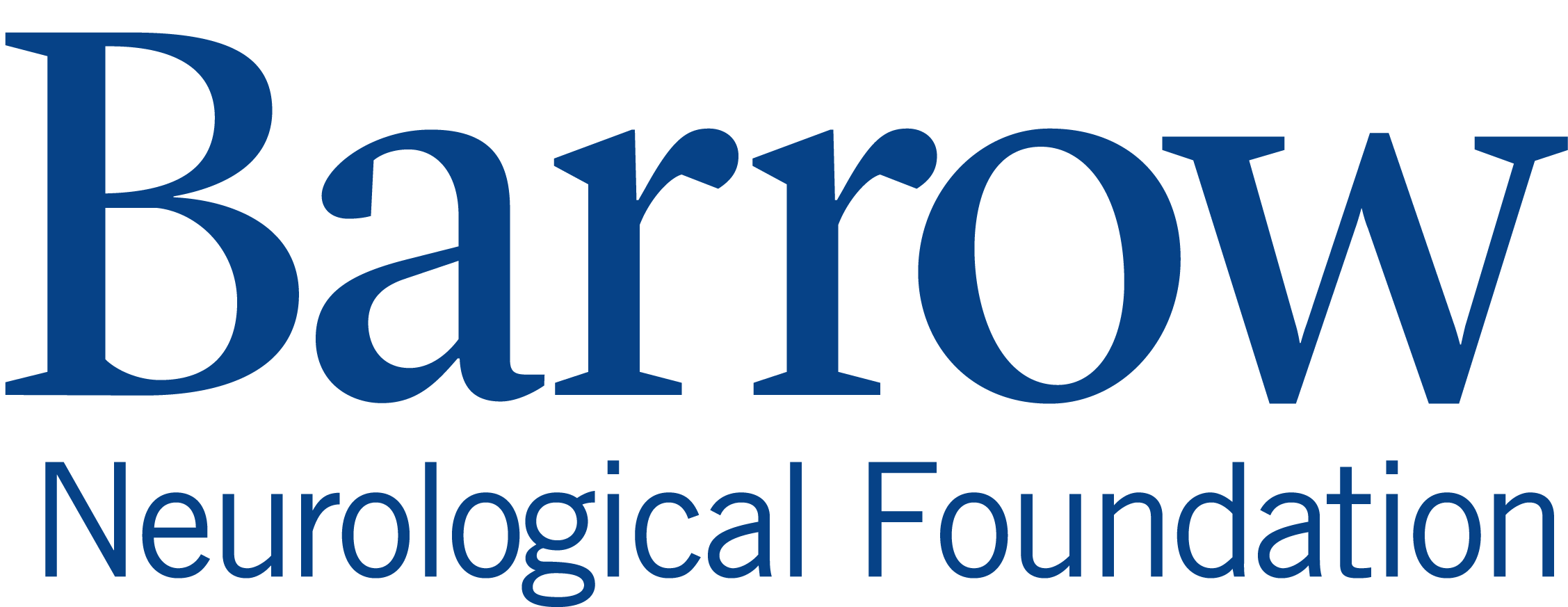
Barrow Saves Woman With Rare Neuroimmune Disorder
Barrow Saves Woman With Rare Neuroimmune Disorder
In April 2020, 27-year-old Reyna Felix was working a typical night shift at her job as a 911 fire dispatcher. But her co-workers noticed that she wasn’t acting like herself. She was also sending strange text messages to her family and friends, telling them she was depressed and unhappy with her life, work, and education. Then around midnight, she collapsed and had a seizure. Reyna doesn’t remember any of it. In fact, most of her memory from the seven months prior to the seizure, as well as the two months after it, is gone.

On that fateful April night when Reyna had the seizure she was taken immediately to the emergency room. After multiple tests and an MRI came out inconclusive, they sent her home. The next three weeks were a series of nightmares for Reyna’s husband and family. In addition to multiple seizures, Reyna continued to have hallucinations, didn’t recognize her loved ones, and didn’t have a sense of time or place. She even repeatedly tried to escape her own home, forcing her husband to buy child-proof locks to keep her from leaving. Doctors had no idea what was causing the normally happy, outgoing woman to have these distressing episodes. In the midst of being evaluated for schizophrenia, Reyna’s doctors became concerned for her safety, so they transferred her to a psychiatric facility. That’s when things took a turn for the worse.
While receiving treatment at the psychiatric facility, Reyna started having heart problems and went into cardiac arrest. After being revived, she was transported back to the hospital, where she started having significant trouble breathing. “The doctor at that hospital came up with several possibilities, including meningitis and encephalitis. Unfortunately, they didn’t have the specialists available on staff to treat me, so I was sent home,” says Reyna. The next day, she went into cardiac arrest again. Reyna was revived and transported to the hospital for the second time in a week. However, doctors were still hesitant to treat her or give her a formal diagnosis. Finally, her family asked to consult Barrow Neurological Institute.
At Barrow, Ram Narayan, MD, was able to give Reyna’s family what doctors at the other seven hospitals she was admitted to couldn’t: a diagnosis. Reyna was diagnosed with Anti-NMDA Receptor Encephalitis, a rare condition that causes inflammation of the brain and is often misdiagnosed as a mental illness. Luckily, Dr. Narayan holds a certification in rare neuroimmune disorders (CRND) and is trained to treat conditions such as Anti-NMDA Receptor Encephalitis. He began an intensive treatment plan for Reyna right away. “Dr. Narayan saved my life. He’s one of the few doctors who specializes in encephalitis, so I trust him over all the other doctors we’ve interacted with,” she says.
While Dr. Narayan was able to treat Reyna, the encephalitis caused significant trauma to her brain. “I had to learn how to do everything again—walk, talk, write, and even eat,” she says. Reyna stayed in the Barrow Neuro-Rehabilitation Center, where she received physical therapy, speech therapy, and occupational therapy, along with continued treatment from Dr. Narayan. She recalls one of her greatest triumphs when she improved enough to go outside. “My occupational therapist took me out for a walk and helped me along as I used my cane. I’ll never forget being outside with the sun shining on me for the first time in what felt like forever.”
Still, recovery from a condition like encephalitis is unpredictable, so Reyna wasn’t sure if she would be able go back to a fast-paced, high-stress job like she had as a 911 dispatcher. “With my hard work, and with the help of Dr. Narayan, my neuro-rehabilitation doctor, the neuropsychologist, my inpatient rehab team, and my outpatient rehab team, I am now back to working as a 911 dispatcher,” says Reyna. “I am even taking college courses, which helps my brain stay sharp, and I’m back to hiking and weight lifting too.” She recently celebrated her fifth wedding anniversary with a hiking trip to Zion National Park.



